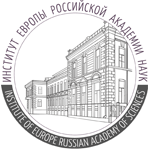institute of europe
the institute of europe of the russian academy of sciences
The Best of Times, the Worst of Times: Navigating Life at the Crossroads
- 17 May 2022
On 17 May, 2022, Prof. Alexey Gromyko, Director, Institute of Europe (Russian Academy of Sciences), took part in a session of the series “The Best of Times, the Worst of Times: Navigating Life at the Crossroads”, which is sponsored by Conversation at the Crossroads (https://crossroadsconversation.com.au/), a new initiative designed to raise the level of public conversation.
The aim of the session “The Anglo world vs Russia and China: Is conflict inevitable?” was to explore the implications of current tensions for Europe and the Asia-Pacific region. The other speaker was Dr. Geoff Raby, former Australian Ambassador to China.
The session was moderated by President of Conversation at the Crossroads Joseph Camilleri, Emeritus Professor, La Trobe University, Melbourne.
An abstract from Alexey Gromyko’s talk:
“According to SIPRI, in 2021 the world military expenditure for the first time in history exceeded 2 trillion US dollars; in nominal terms it rose by 6,1%. 2021 became the 7th year in a row of a constant increase in military spendings. Some people interpret it as a glass being half full not half empty. One may point out that these spendings’ share in the world GDP is 2,2%, and that this share is less in 2021 than in 2020 in relative terms. However this is a sheer complacency and the reasons for that are fivefold.
Firstly, in the past the world suffered from disastrous wars with a much lower share of military expenditure in its GDP and with much less destructive weapons.
Secondly, these spendings are highly concentrated as more than 60% of it is generated by just 6 countries. Among them the US dwarfs all the others with staggering 800 bln dollars defence budget. It is followed by China with 293 bln, India with 76, the UK with 68 and Russia with 66 bln.
Thirdly, more and more money is spent on new military R&D, on new military technologies and testing, both nuclear and conventional, which may have a huge destabilising effect on regional security and strategic stability. The Mutual Assured Destruction doctrine these days is not any more a bulletproof guarantee against a third world war because of such factors as long-range conventional strike systems, sophisticated ballistic missile defence capabilities, disruptive cyber and space technologies or Artificial Intelligence.
Fourthly, the sphere of arms control and CBMs international and bilateral agreements is dilapidated. The ABM treaty is buried, the CFE treaty is dead, the INF treaty is abandoned, and the Open Skies treaty is on its deathbed. Even the crucially important New Start treaty, which was prolonged by Moscow and Washington last year, may turn out to be the last of the Mohicans.
Finally, the political and strategic thinking internationally has been rapidly militarised, especially starting from the wars in Yugoslavia, Afghanistan and Iraq. Nowadays most people for natural reasons do not remember World War Two and most conflicts in the age of the Cold War. Most people are much more concerned about green agenda and climate change than with deterioration in arms control”.


